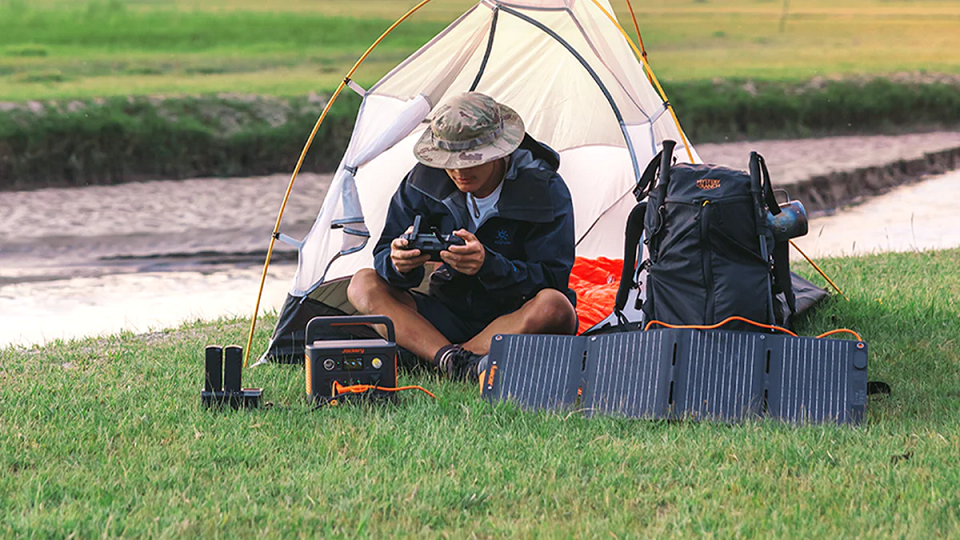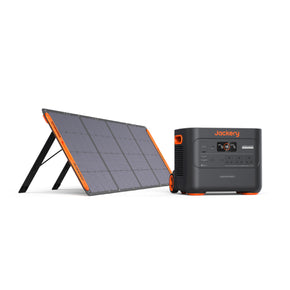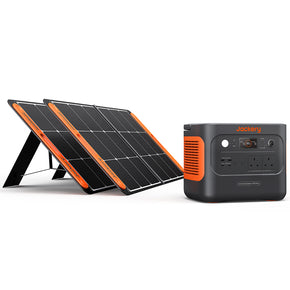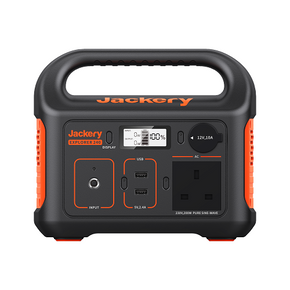Off-Grid Challenges: How Scientists Overcome Energy Constraints in UK Field Investigations
From the first telephone patented by Alexander Graham Bell to the discovery of penicillin by pharmacologist Sir Alexander Fleming, the UK has remained a foundational member of the scientific community. Most notably, the period between the 1500 and 1700s marked the Scientific Revolution when the discoveries made by our country transformed the way we live and how we perceive the natural world.
However, all these innovations and transformative thinking are nothing without evidence. In order for any scientific theory to be put to the test, it must have the necessary equipment for study. This has become significantly easier to manage with the advent of off-grid power systems. Instead of having to rely on antiquated systems far from the reach of mankind, there are streamlined solutions from providers like Jackery that leverage natural energy so scientists can complete any task.
From Lundy Island to Dartmoor, there is a wealth of information just waiting to be uncovered, and solar generators are leading the way in making this possible.

The Energy Dilemma in Remote Research
AI and computer-led research is changing the field of scientific study. Yes, mere observation can achieve a great deal. However, the best way to leverage all the unique tools at our fingers is through powered devices.
The challenge is that the UK, while celebrated for many rich natural landscapes and diverse ecosystems, also comes with hard-to-reach territories that are far off-grid. Whenever an expedition is launched, even if only for an afternoon, we risk learning more about the environment, ecology, and numerous other scientific fields.
Research in such areas relies heavily on numerous electronic devices and equipment. This could be the sensors on livestock or wild animals, data loggers for climate, GPS units, and communication methods. All these tools are crucial in the collection, storage, and transmission of vital data points. Without reliable power to manage such equipment, we risk losing out on fantastic discoveries.
Off-grid power systems bridge the gap between such issues, even if stuck in the rugged highlands of Scotland or the cliffs of Cornwall. Then there is the unpredictability of British weather. We suffer through frequent rainstorms with limited sunlight. Having a portable power station that can maximise its charge, even when weather issues crop up, is crucial. You also want a solution that isn’t as noisy as gas-powered options, so you don’t disrupt the area you are trying to study.
Off-grid solar power systems provide an eco-friendly solution with reliable power that doesn’t experience high fluctuation. There is no noise pollution, and the equipment is easy to carry in/carry out, so you leave no trace in the outside environment. That solves many of the logistical nightmares that can arise, given more traditional solutions that may have potential fuel spills or pose a danger to the surrounding flora and fauna.
Unique Challenges in Off-Grid Field Investigations
With a portable solar panel array, the challenges of off-grid power systems have become a thing of the past. Scientists from any field can better equip their research. This can be anything from a traffic study on a backroad during Boxing Day to a full-fledged field investigation of offshore drilling locations for environmental consideration.
Some of the concerns surrounding such off-grid explorations include:
- Weather Limitations: The UK gets anywhere from 800mm to 1,400mmin annual rainfall, and that is besides the unpredictability of storms, snow, and heavy winds. Being so close to the Gulf Stream and North Atlantic Drift of the Atlantic Ocean means warm water in higher northern latitudes, often resulting in severe weather that can easily make power a challenge for researchers.
- High Energy Demands: Scientific equipment is not like charging an iPhone and calling it good. Many of these instruments require sophisticated and power-hungry solutions. That means consistent energy supplies for the various tools to function at their optimal settings. When you’re in a far-off section of the UK, finding off-grid power solutions can be a challenge.
- Lack of Infrastructure: Many tourists dream of visiting those tiny hamlets around the UK that are far from the “reach of man.” The problem for visiting scientists is these areas do not have the electrical, transportation, or communication infrastructure to support intensive study. That is a significant hurdle that can be overcome with efficient off-grid power systems.
- Transportation of Fuel: Fuel is a liquid. It weighs a great deal when in ample supply and can be highly cost-prohibitive, given the fluctuation in current markets. A team of scientists could be in the middle of an intensive research program and run out of fuel because it is too heavy or too hard to refuel their remote station. Using a solar generator in the UK makes way more sense for this issue.
- Power Outages: Almost 66% of UK residentsexperience power cuts inside their local areas. This can be from faulty infrastructure to extreme weather to downed power lines. That is just for the “on-grid” settings. Imagine the difficulty with off-grid research when that number is so high. Off-grid power systems get around any such concerns by using renewable energy sources and high-yield batteries, so equipment remains fully functional day and night, regardless of weather.
The continuity of a reliable power supply is more than a luxury. It is a significant necessity for scientific research and field research that must be properly addressed whenever a team is considering a new project.

The Rise of Solar Generators
Luckily, many of the concerns around field research can be properly addressed through the use of off-grid power systems in the UK. Solar generators allow researchers to use readily available power sources (the sun) in off-grid research settings that are both eco-friendly and far more cost-effective than fuel or on-grid solutions. Some of the benefits of these advancing tools include:
Portability and Efficiency
You never know where a research study will lead when working in the field. Without portability, you risk losing out to a competitor team or key insights due to a lack of mobility. Solar generators tend to be highly compact and lightweight, especially the products offered by Jackery. That portability empowers researchers to trek to remote locations with an easy carry-in power source that can be set up in mere minutes.
Modern solar power is far more efficient than the innovations of the past. This is why you see so many homes and off-grid cabins relying more and more on solar as a way to offset expenses or operate year-round free from infrastructure. This is crucial in the UK, where sunlight can be sporadic and limited, especially during certain seasons. The latest solar panels are designed to function even under low-light conditions, ensuring that the generator can be charged even on overcast days, thus providing a consistent power supply for research.
Durability and Reliability
When you are out in the field, you want a solar solution that is durable to the elements and travel. Researchers tend to be much easier on equipment than, for example, an athletics team, but that doesn’t mean the rigour of outdoor environments will not take a toll. From rain to snow to accidental dropping, the rugged construction of solar panels and generators is crucial to successful field study.
Reliability is more than the lifespan of any such generator. Most of these will not suffer the same breakdowns as traditional fuel-based power sources because there aren’t as many moving parts. That being said, you want reliability for a consistent flow of energy. Many research projects span extensive periods. You want a solution that allows a team of scientists to focus on the work instead of worrying about power interruptions.
Environmental Considerations
Of course, any scientific team will be more emphatic toward the need for environmental sustainability with power solutions. Solar generators are perfect for reducing the footprint left behind during a field study. They operate quietly and lessen the overall disturbance to wildlife – a crucial factor for ecological studies.
Integration with Technology
Modern off-grid power systems must integrate with cutting-edge technology. Today’s scientists not only rely on such innovations, but they often are the reasons for the development of new tools. Research comes with unique considerations that must be addressed in the field. A modern solar generator has to be versatile enough to allow for such discovery and innovation in real-time, enabling researchers to optimise energy consumption based on the needs of equipment and environmental conditions.
Jackery Solar Generators – A Reliable Ally in Field Research
The field application of any solar generator must be considered long before a team is funded and sent out into the world. Given the often remote terrain of the UK, off-grid power solutions are more crucial than ever.
That is where the Jackery Explorer 300 Plus Portable Power Station and Jackery Explorer 1000 Plus Portable Power Station come into play. These tools allow for various applications through a wide range of field study areas. Reliable and consistent energy is then possible regardless of weather, power infrastructure, remote location, or sunny days.
Jackery Explorer 300 Plus Portable Power Station: Features
- Compact and Lightweight Design: Ideal for portability, easily fitting in backpacks for on-the-go research.
- 288Wh Capacity with 300W Output: Sufficient to power multiple devices simultaneously.
- Innovative ChargeShield Technology: Enhances safety and extends battery life, even in high temperatures.
- Long-lasting LFP Battery: Durable and efficient, suitable for prolonged fieldwork.
- Solar and Wall Charging Capabilities: Can be fully solar charged in 4 hours and wall charged in 2 hours.
- Smart App Control: Enables remote monitoring and management of power usage.
Jackery Explorer 1000 Plus Portable Power Station: Features
- Higher Power Capacity: 1260Wh with a 2000W output, suitable for more energy-intensive equipment.
- Expandable Energy Storage: Can expand up to 5kWh with additional battery packs.
- Fast Charging Options: Achieves 100% battery level in 100 minutes via wall charging and 2 hours with solar panels.
- 4000 Charge Cycles: Exceptional battery life with a long-lasting LiFePO4 battery.
- Advanced IBC Solar Technology: Ensures high solar conversion efficiency for quick and reliable charging.
- Ultra-Quiet Operation: Operates with minimal noise, less than 30dB, ideal for sensitive research environments.
While both the Jackery Explorer 300 Plus Portable Power Station and Jackery Explorer1000 Plus Portable Power Station offer reliable, eco-friendly, off-grid power solutions, they cater to different needs. For example, the Jackery Explorer 300 Plus Portable Power Station is much smaller in size and has a quicker charging capability. This would be better suited for a small team of researchers using 5-10 devices like a laptop, communication tools, and recording instruments.
However, for a larger party that will be stationed in an area during an extended stay, the Jackery Explorer 1000 Plus Portable Power Station is the better option. It holds a much higher power capacity and expandable storage for demanding field applications that involve greater energy consumption. For example, a team of 20 working off the coast needs around-the-clock power for a 2-month study with equipment and survival needs.
With both models, you get plenty of durability, power efficiency, advanced technology integration, and the consistent flow of energy essential for any field research project – all in an easy-to-move-and-store form factor.

Conclusion
The world of science should never be restricted. We need brave and innovative thinkers to feel empowered to explore anywhere the facts lead, including those remote areas of the UK that may be harder to reach and ensure proper power supply.
For these situations, using tools like the Jackery Explorer 300 Plus Portable Power Station or the Jackery Explorer 1000 Plus Portable Power Station becomes crucial to success. This way, scientists of any field or niche are able to finish their work without worrying about consistent power or a damaging footprint that could adversely affect the local environment.
As the demand for off-grid power systems grows, these portable power stations are poised to become essential tools in the quest for scientific discovery and exploration. Tomorrow’s discoveries may only be a quick off-grid power solution away.
Related Articles:
The Best Batteries for Solar Off-Grid [2023]












































































